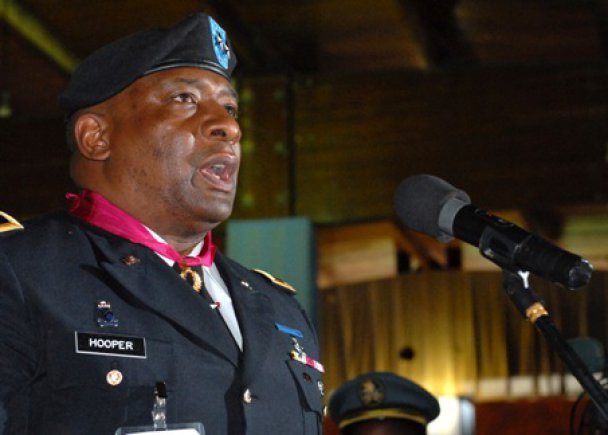U.S. Africa Command officials, U.S. officials and representatives to several African nations were pleased with the results of a joint military communications exercise, which concluded in Douala, Cameroon, June 27.
“Based on what I’m seeing, it is clear that Africa Endeavor 2012 has been a great success,” said Maj. Gen. Charles W. Hooper, the director of J5 (Strategy, Plans and Programs) for U.S. Africa Command. “It is a culmination of hard work and dedication building upon not only last year’s achievements but the previous seven Africa Endeavor exercises.”
Africa Endeavor, the largest military communications exercise on the African continent, tested the interoperability of equipment from different nations as well as their ability to cooperate and share information.
More than 200 participants representing over 30 African countries along with North America, Europe and international organizations took part in the scenario-based exercise, which began June 18.
“This Africa Endeavor exercise is one clear example that the African nations are taking action and have not only demonstrated the confidence to face real world challenges but also demonstrated the courage to trust in each other,” Hooper said.
The overall objective of the exercise was to establish a framework for communications interoperability and compatibility that will allow partner nations to successfully conduct future multinational peacekeeping, humanitarian and disaster relief operations.
Throughout the exercise, nations documented, validated and corrected tactics, techniques and procedures in an effort to establish this framework.
Republic of Congo delegation chief Col. Leon-Rodance Ndinga said Africa Endeavor will build a new framework of communication for Africa which will contribute “to peace and stability” to the continent.
“We are establishing a platform to iron out differences and are harmonizing methods of operations,” said Col. Stephen Koku Assem, the director of communications and information systems of the Ghana Armed Forces.
In addition to the technical interoperability, the exercise served as a platform to create and develop interpersonal relationships.
To Ndinga, Africa Endeavor is not only technical interoperability. It is also the cooperation between military members that helps countries build a strong force to protect their continent. “New friends are made here,” Ndinga added.
The first three days of the 10-day exercise focused on ensuring equipment was interoperable. During the remaining days of the exercise, participating nations and the African Union collaborated and coordinated troop response — between each other and African Union participants in Addis Ababa, Ethiopia — to a simulated earthquake in a fictitious country after deploying to a peacekeeping mission.
According to Navy Cmdr. Bryan McRoberts, Africa Endeavor exercise director, the tactics, techniques and procedures developed are applicable regardless of the scenario used.
A different aspect on communications was added to this year’s exercise by gathering public affairs representatives, giving them the opportunity to enhance their skills. Through group discussions, participants received helpful tips on how to apply communications theories in a military situation.
This is the sixth iteration of the exercise since the first was held in South Africa in 2006. Planning details began in November 2011, were developed in March 2012, and finalized in May.
“What we have accomplished here this week has real world implications,” Hooper said. “This event showcases how well the nations of Africa are taking action to further develop regional partnerships to increase stability and security for all nations.”










